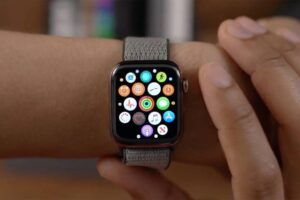In this article, we will help you understand that though fitness trackers are not the perfect devices for diagnosing a disease, but these devices can surely help to improve your health if used properly.
Do Fitness Trackers Help You Take Care Of Your Health?
The sensitivity of these devices is sufficient to assess the resting heart rate and detect palpitations. Wristwatches, smartphones, and blood pressure monitors are worse; pulse oximeters and ECG devices are better. One way or another, all of them can be used by doctors to collect anamnesis and diagnostic data.
Fitness trackers are welcomed by doctors, and European experts have issued a consensus on this issue, which determines how best to use information from patient smart gadgets. For each device, the sensitivity and specificity in assessing changes in heart rate were determined.
It is absolutely realistic to detect a disease at an early stage using smart devices, and quite often people pay attention to data from gadgets and come to an appointment with a question about them. It is impossible to make a diagnosis based on them, but one or another disease can be suspected. Bringing pressure, pulse, and weight diaries to appointments is good practice. All these data help in diagnosis and allow better monitoring of the patient’s condition.
Can Health Devices Be Trusted?
Yes, but not really. All fitness trackers are health assistants, but not medical devices. These devices cannot be used to make a diagnosis, but they can tell you when to see a doctor. Manufacturers claim that the gadgets are accurate enough, but warn that suspicious or inconsistent measurement results should be double-checked by doctors.
Research confirms that sometimes trackers make mistakes, significantly distorting the real picture. Usually, errors are associated with improper wearing of the device. For example, for measuring the pulse, a snug fit in the right place is important, and for the correct calculation of calorie burning, it is important to accurately enter the food eaten into the program.
Are Health Devices Useless?
This does not mean that health gadgets are useless or dangerous. For example, they are able to suspect a coronavirus infection in the early stages and help monitor recovery after an illness. And Apple Watch warns of falling and atrial fibrillation – these features have repeatedly saved people’s lives.
Moreover, they are also beneficial when participating in dangerous activities, such as diving. In such a condition, devices like Huawei watch GT 3 pro 46mm can monitor a person’s health and alert in case of emergency.
6 Steps to Get the Most out of Your Fitness Tracker
- Create a list of indicators that you need: for example, heart rate, and daily activity. Do not follow something just like that – excessive control is addictive.
- Get a medical card in the application and enter up-to-date data on your height, weight, or diseases. It is not necessary to specify redundant data – you can get by with basic parameters.
- Explore possibilities you never thought of before. Estimating blood oxygen saturation – SpO2 – can be useful for both individual athletes and people suffering from respiratory diseases or living in the mountains.
- Don’t neglect your heart rate. You may not feel a rapid heartbeat, but in some critical situations, the tracker will tell you that it would be nice to calm down, or, conversely, it will tell you that the pulse is too low.
- Turn on stress assessment and ambient noise measurement if available. This will help you better avoid stressful situations that you unconsciously find yourself in.
- Link your tracker with other devices. Some gadgets have a GPS module or an ANT + communication protocol, with which the tracker can be synchronized with navigators, bike computers, and other equipment for tourism and active sports.


